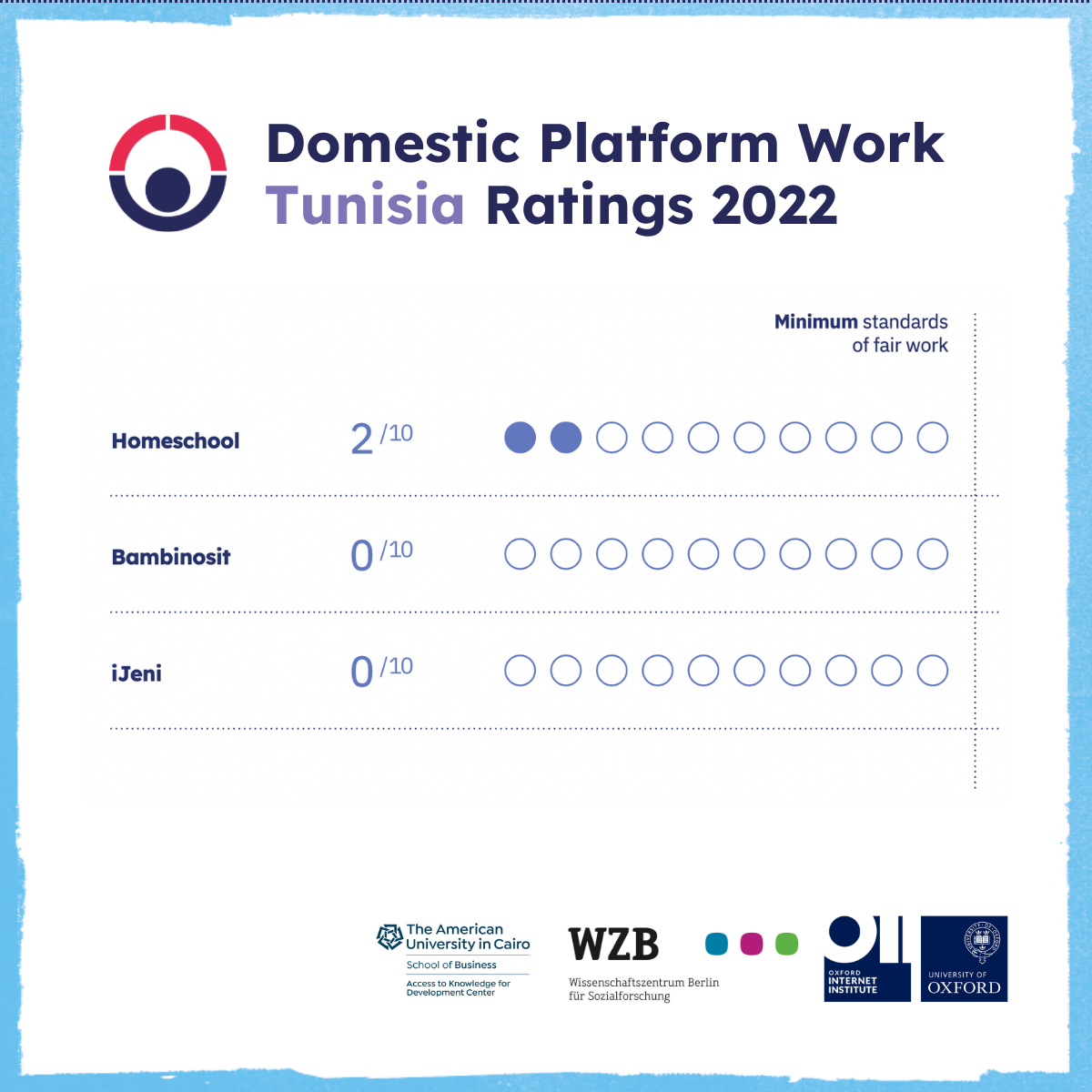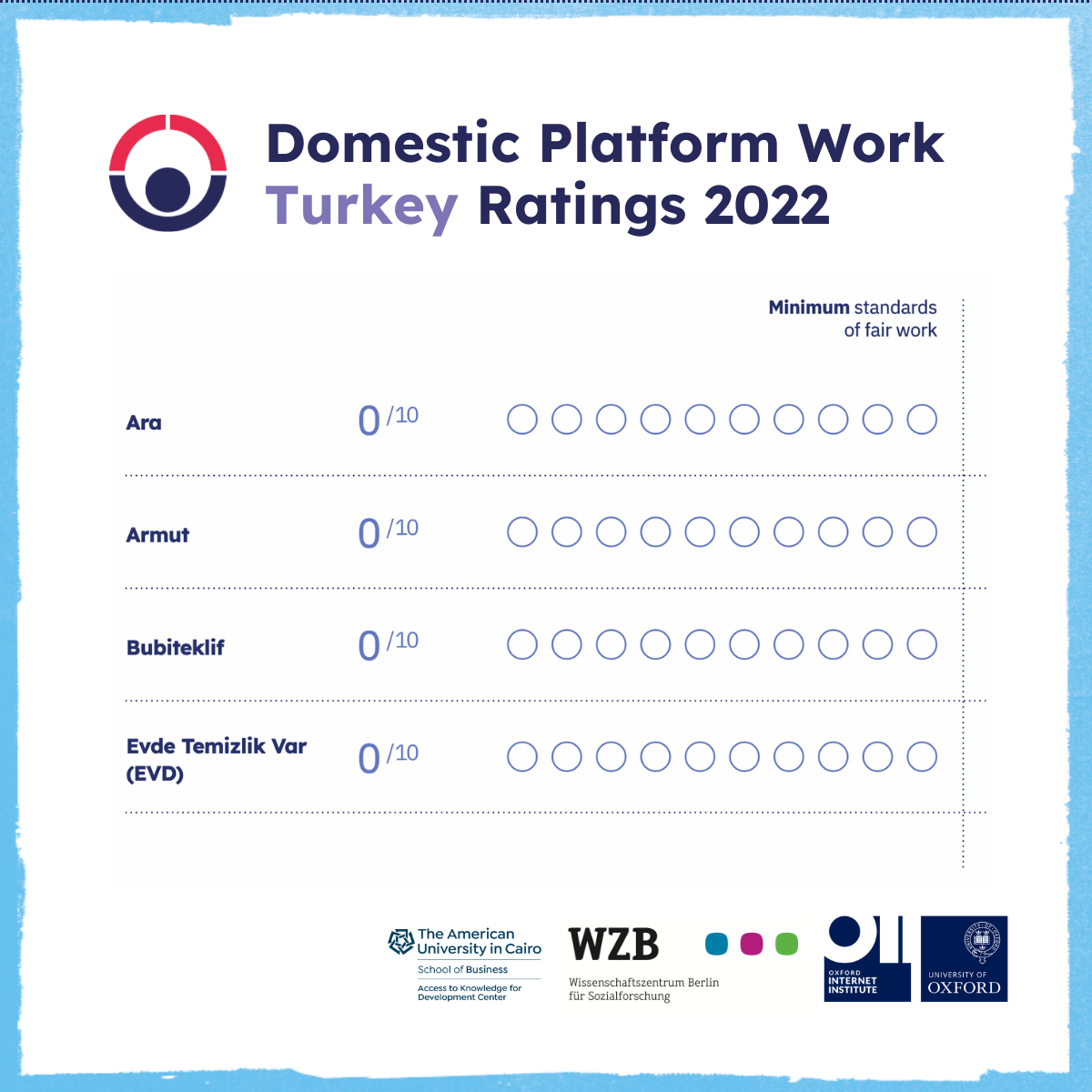New report from Fairwork assesses the state of domestic platform work in the Middle East and North Africa

The purpose of this report is to provide an overview of the domestic service sector in the Middle East and North Africa (MENA) region and identify challenges and problems regarding the working and living conditions of domestic workers, with a focus on specific challenges for women and migrants.
The report attempts to answer the following question: “Can the introduction of digital labour platforms improve working conditions in the domestic work sector?” It provides an analysis of the socio-economic context for this work and describes the development of digital labour platforms and their impact on employment and working conditions in the sector. By shedding light on these conditions within a highly invisible and informal sector, the report aims to impact policy and platform managers. This is the motivation for Fairwork Egypt‘s work on assessing fair working conditions in domestic platforms and its challenges, working towards setting decent work standards for domestic workers in MENA.
This year’s report provides evidence-based takeaways from fieldwork on fair working conditions in the digital labour platforms in the domestic work sector in Tunisia and Turkey. It is important to note that this report offers a general overview of the issues relevant to domestic platform work in the MENA region as a whole, it does not claim to offer exhaustive coverage of all the pertaining issues. In this vein, the evidence collected from platforms in Tunisia and Turkey is meant to be illustrative and explorative.
The report sheds some light on the possible impacts of domestic work platforms in the MENA region by drawing on seven case studies. As this is the first report assessing domestic work platforms in the MENA region, the purpose is to engage with platforms, relevant stakeholders and policymakers to work towards improving working conditions for domestic workers in the region, and implement positive changes in the platform economy. This is a preliminary step towards more advocacy efforts in addressing the problems relating to domestic platform workers and setting standards for a fairer platform economy.
Ratings
Fairwork Egypt scored the working conditions in digital labour platforms according to five Fairwork principles, that is fair pay, fair conditions, fair contracts, fair management and fair representation. Fieldwork was conducted in Tunisia and Turkey, with 31 and 22 interviews respectively, and the ratings are presented in the tables below:

Key findings
Fair Pay: Most domestic workers in the platform economy are paid below the minimum wage, especially when taking into consideration the costs incurred by workers while on the job. We could not evidence that any of the platforms evaluated for this study met the thresholds for this principle.
Fair Conditions: Domestic platform workers are often not protected against safety risks they face in the course of their jobs. We could not evidence any safety training provided to workers.
Fair Contracts: Most domestic platform workers have terms and conditions available to them either in the form of a hardcopy contract or platform interface. However, the terms and conditions are often not clear or transparent. Changes to the terms and conditions are not communicated in due time and, most importantly, most platforms have a liability clause where providers (workers) are solely responsible for their actions. From the fieldwork conducted, only one platform in Tunisia, Homeschool, was able to provide sufficient evidence to be awarded the first point for fair contracts.
Fair Management: Most domestic work platforms provide a communication channel between the service provider and management, however, their effectiveness is uncertain. Some are highly responsive, and others much less so. We were unable to find sufficient evidence to award platforms this point. Except for one platform in Tunisia, Homeschool, was able to evidence a meaningful appeals process, and hence was awarded a point.
Fair Representation: Workers in the platform economy in the region, irrespective of their particular occupation (domestic worker, driver, courier, etc.) are generally not part of a trade union or collective body.
What can I do? Fairwork Pledge
As part of Fairwork’s commitment to making platforms accountable for their labour practices, we have launched the Fairwork Pledge. This pledge aims to encourage other organisations to support decent labour practices in the platform economy, guided by the five principles of fair work.
Organisations like universities, schools, businesses, investors and charities that make use of platform labour can make a difference by supporting platforms that offer better working conditions.
Organisations have the option to sign up to the Pledge as an official Fairwork Supporter or an official Fairwork Partner. Those signing up to be a Supporter must demonstrate their support for fairer platform work publicly and provide their staff with appropriate resources to make informed decisions about what platforms to use. Becoming a Fairwork Partner entails making a public commitment to implement changes in their own internal practices, such as committing to using better-rated platforms when there is a choice.
